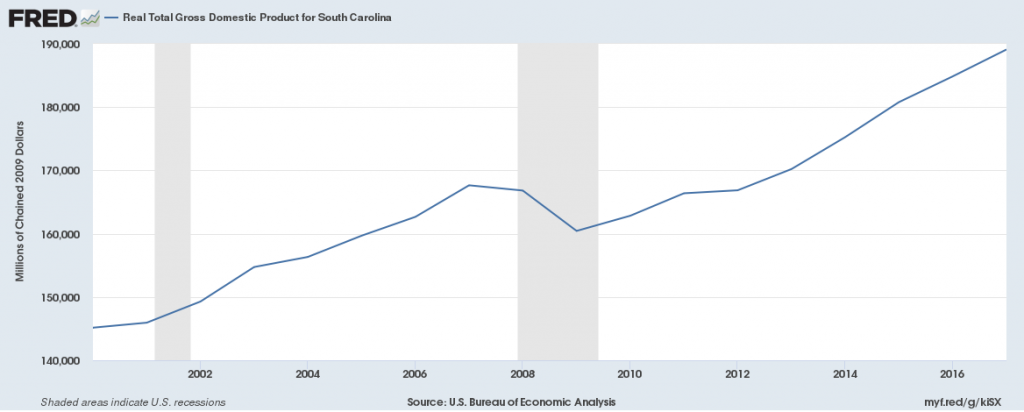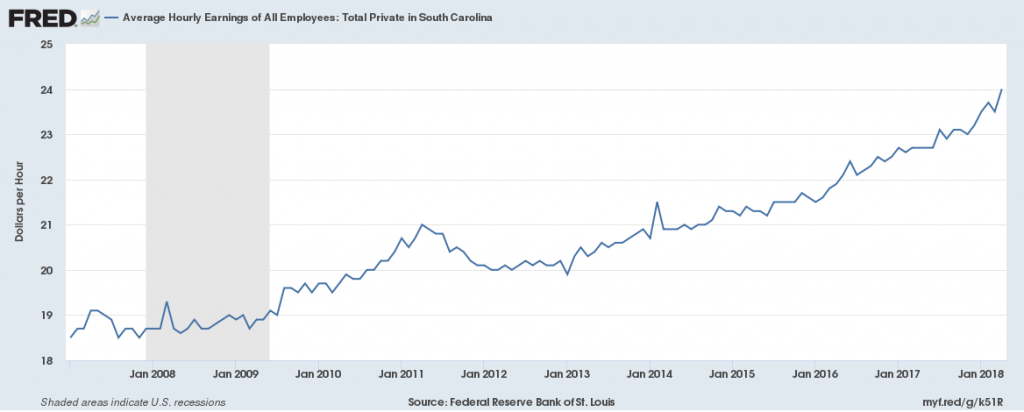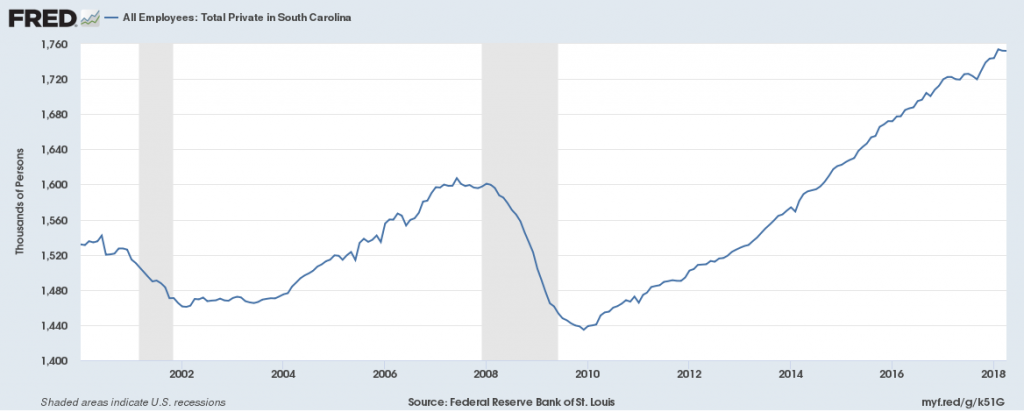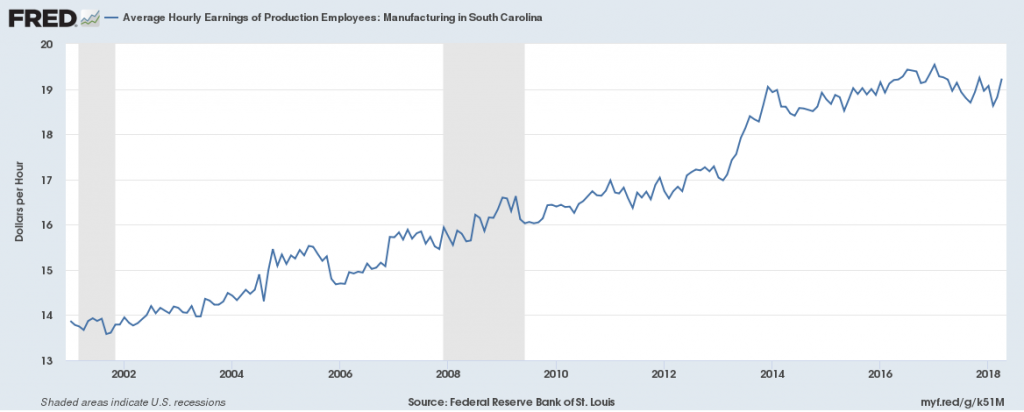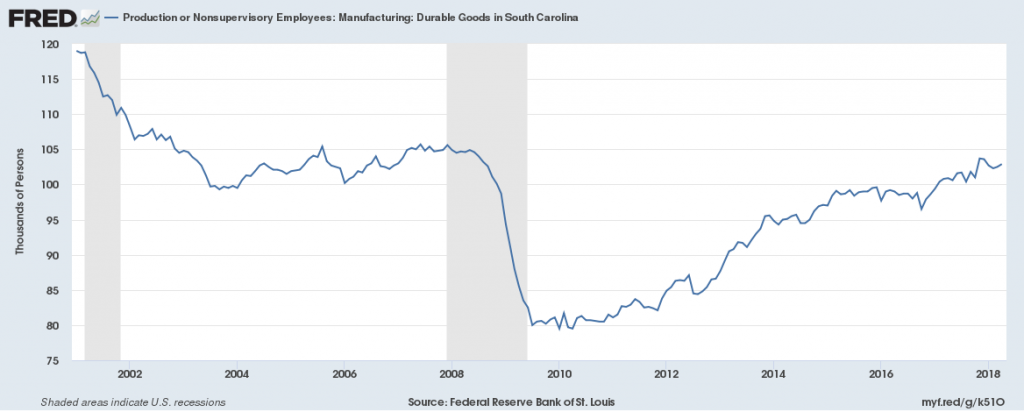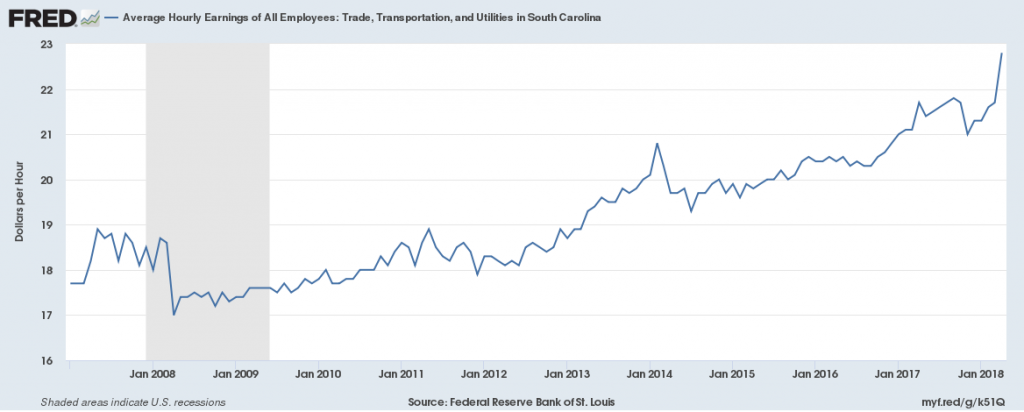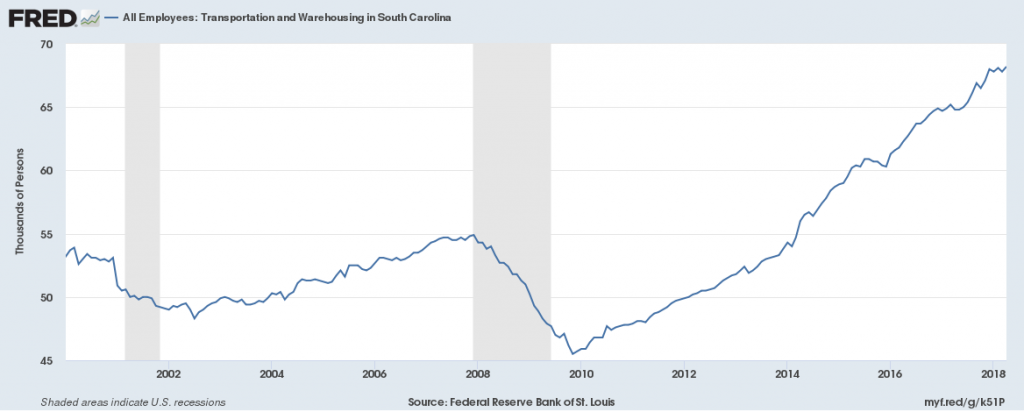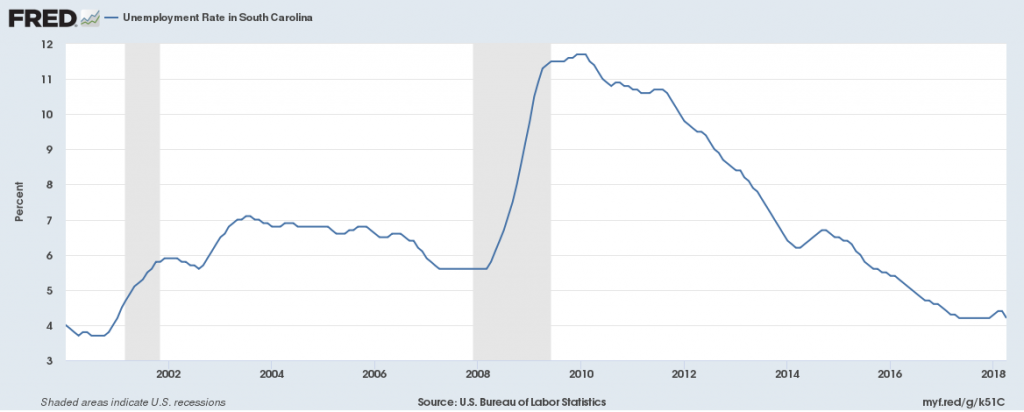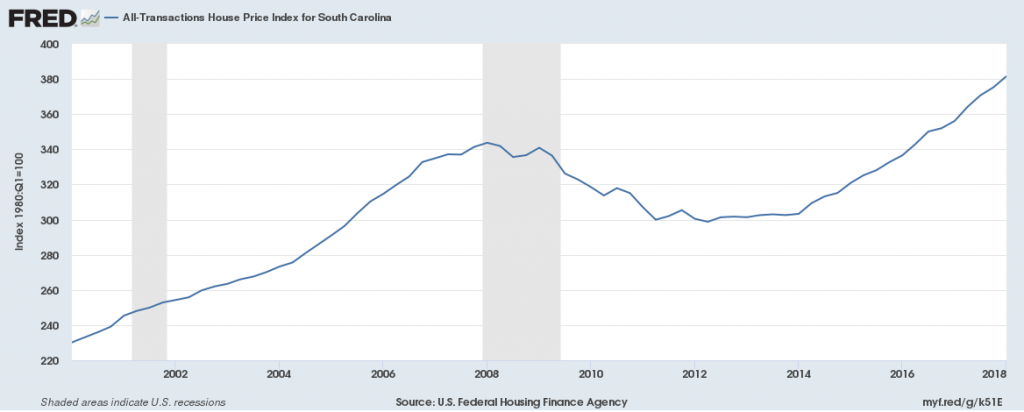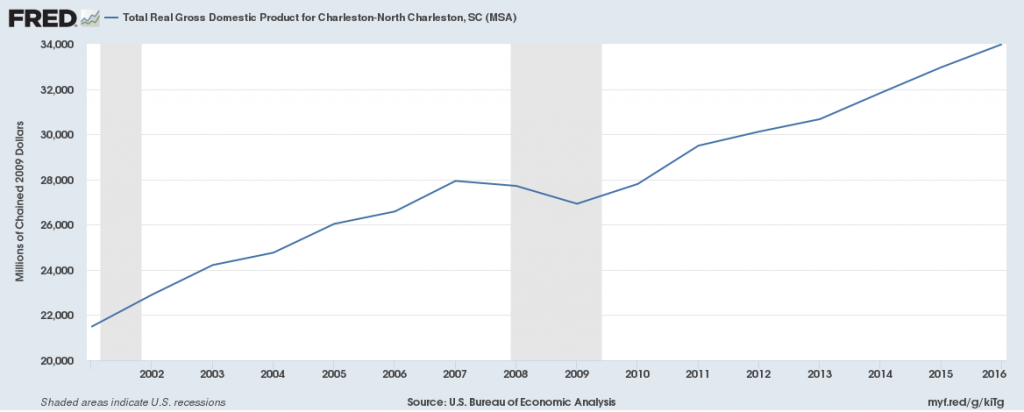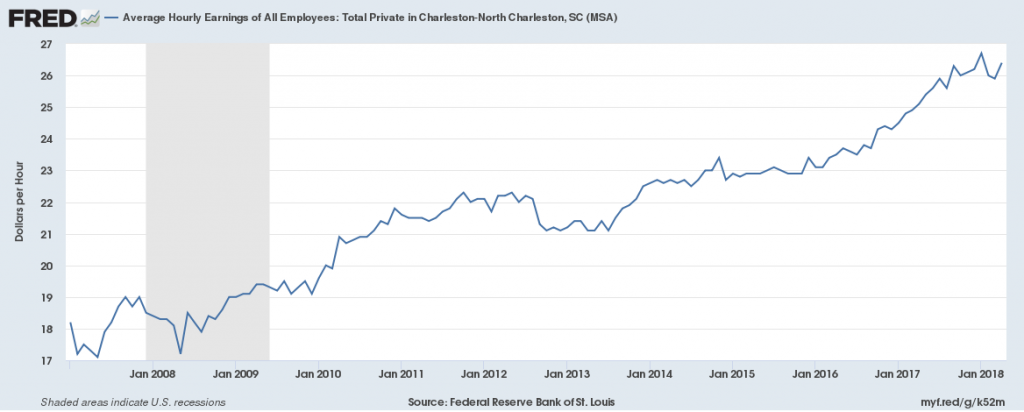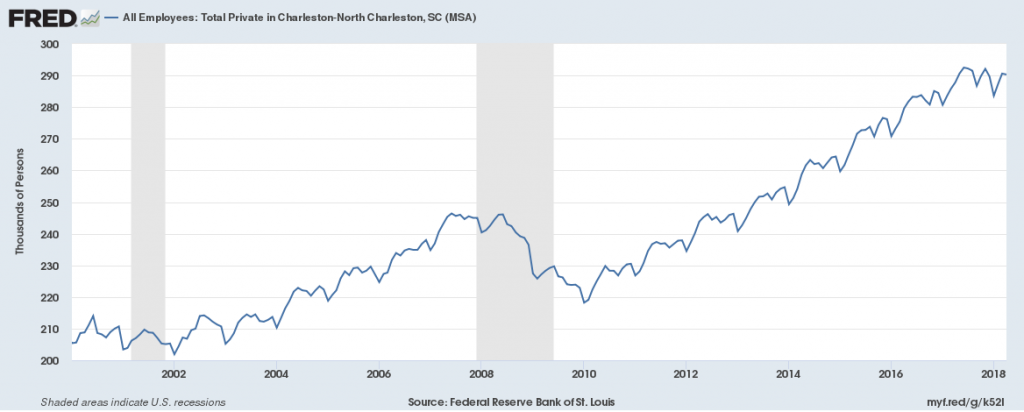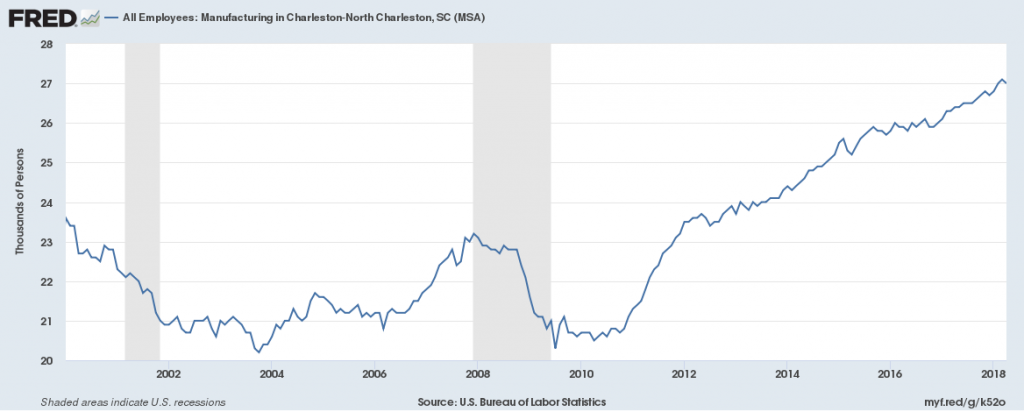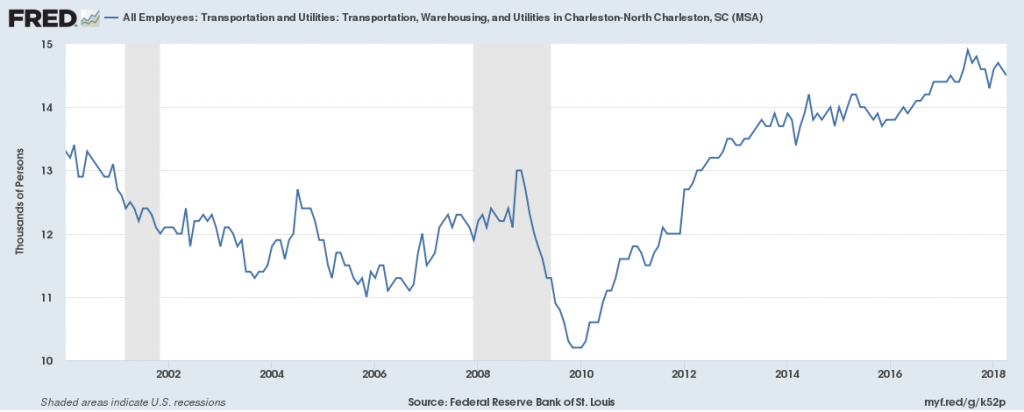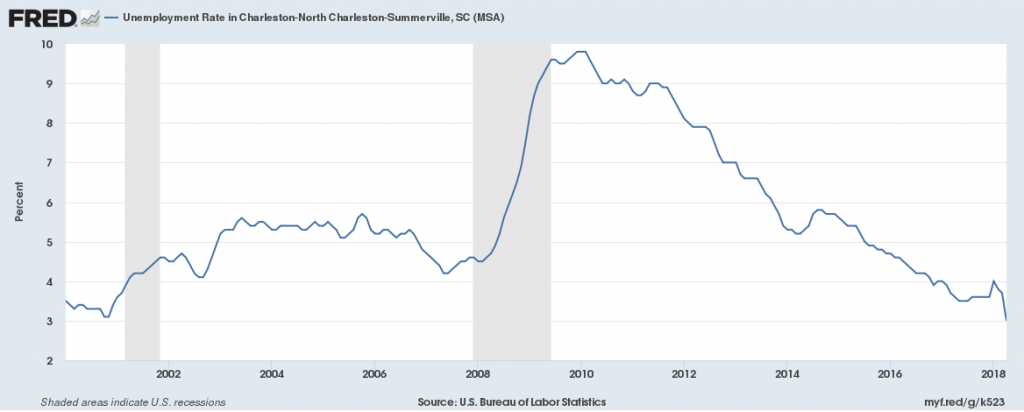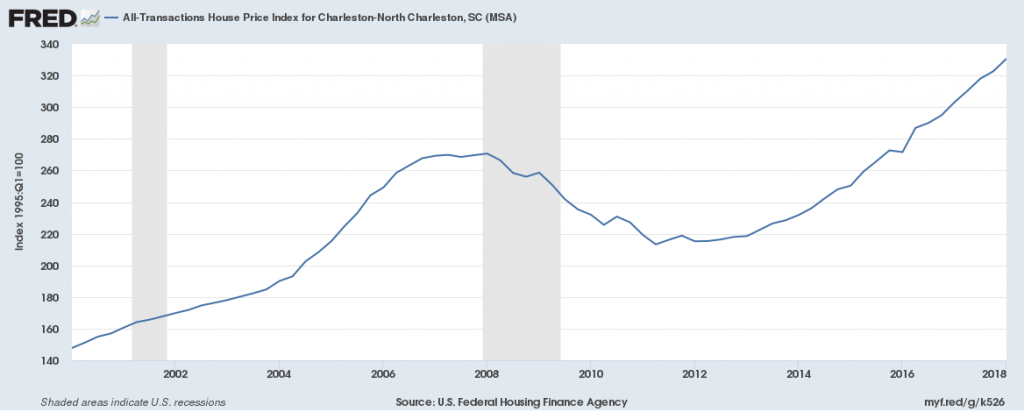Gross Domestic Product
Real GDP (a measure of economic growth) increased from 2009-2017 from the 2009 low of $160 billion to $188 billion in 2017.
Jobs
Private-sector employers have added 50,000 jobs since 2010, the national low point for private-sector employment. From 2017 to 2018 the private sector has added approximately 220,000 net new jobs for a total of 1,760,000, putting it above the 2008 pre-recession high of 1,680,000 total jobs. Average hourly wages in the private sector have grown since 2008, going from $19/hr to $24/hr in 2018.
Manufacturing employment has been declining from 2000 to 2010. By 2018 manufacturing employment recovered to pre-recession levels at 103,000 jobs. Average hourly wages of production employees were $19/hr in 2018, growing consistently since 2002 from $14/hr.
There were 70,000 jobs in the Transportation and Warehousing sector in 2018, above pre-recession levels by 23,000 jobs, showing growth in this sector. The average wage in Trade, Transportation and Utilities occupations was $22.80 in 2018, growing from $17/hr in 2008.
Unemployment
The unemployment rate in 2018 is 4.3%, down from the prior year’s 4.8% rate. This is below the national average of 3.9% unemployment.
Housing
The House Price Index, a measure of the cost of housing, declined after 2008 until 2013 when it began to grow from 300 to 380 by 2018, showing increased housing costs.
Charleston-North Charleston
Gross Domestic Product
Real GDP (a measure of economic growth) increased from 2009-2017 from the 2009 low of $27 billion to $34 billion in 2016.
Jobs
Private-sector employers have added 70,000 jobs since 2010, the national low point for private-sector employment. From 2017 to 2018 the private sector has added approximately 10,000 net new jobs for a total of 290,000, putting it above the 2008 pre-recession high of 247,000 total jobs. Average hourly wages in the private sector have grown since 2008, going from $19/hr to $24/hr in 2018.
Manufacturing employment has increased since 2010 to new highs in 2018. Employment exceeded 2000 levels in 2018, hitting 27,000 jobs. Average hourly wages of production employees were $19.71/hr in 2018.
There were 14,500 jobs in the Transportation, Warehousing and Utilities sector in 2018, above pre-recession levels by 1,500 jobs, showing mild growth in this sector. The average wage in Transportation and Material Moving occupations was $17.59 in 2018, growing from $17/hr in 2008.
Unemployment
The unemployment rate in 2018 is 3%, down from the prior year’s 4% rate. This is below the national average of 3.9% unemployment.
Housing
The House Price Index, a measure of the cost of housing, declined after 2008 until 2013 when it began to grow from 220 to 330 by 2018, showing increased housing costs above pre-recession levels.






